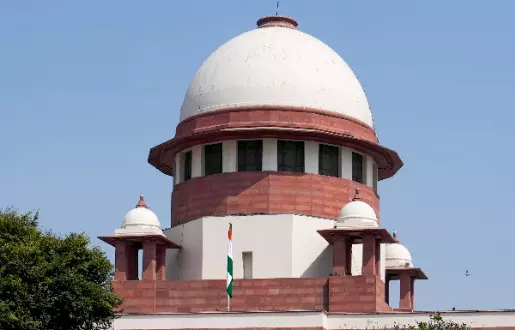SC refuses to give quota for promotee judges in the Higher Judicial Service

New Delhi: The Supreme Court on Wednesday declined to extend reservation benefits to promotee judges in the Higher Judicial Service, ruling that the cadre does not suffer from the “common malady” of disproportionate representation that could justify such a measure. A five-judge Constitution bench led by Chief Justice of India B R Gavai held that dissatisfaction among a segment of officers cannot be the basis for creating a distinct subclass within the service.
The bench, which also included Justices Surya Kant, Vikram Nath, K Vinod Chandran and Joymalya Bagchi, said the plea for quota lacked a legally sustainable foundation. “Perceived discontentment and heartburn without something more in the form of a legal claim, illegal denial, or at least a legitimate expectation cannot result in creating an artificial classification of members within a cadre,” the court stated.
According to the judgment, the statistical material placed before the bench did not demonstrate any consistent pattern that could support the grievances raised by Regular Promotees. “The statistical data is disparate and does not provide a substantial basis to find such discontentment and heartburn of RPs in the HJS to be justified,” the bench said.
The court clarified that advancement within the Higher Judicial Service, specifically in the Selection Grade and Super Time Scale, must continue to be governed by merit-cum-seniority in the common cadre of district judges. It rejected the argument that promotions should hinge on the length of service or performance in the subordinate judiciary. “Fixation in the Selection Grade and Super Time Scale within the HJS is based on the merit-cum-seniority within the cadre and cannot depend upon the length of service or performance in the lower rungs of the judiciary,” the order said, adding that once Regular Promotees and officers selected through the Limited Departmental Competitive Examination enter the HJS, earlier service parameters lose relevance.
The bench further noted that neither the duration nor the assessment of work as a civil judge forms a sound basis for classification. It added that individual professional ambitions are inherent to any service structure and “are not connected to the objective of an independent and strengthened judiciary.”
Issuing directions for future appointments, the court prescribed an annual four-point roster for determining seniority. Posts arising in any given year will be filled sequentially by two Regular Promotees, one LDCE recruit and one direct recruit. The court said that delayed appointments will align with the roster of the recruitment year only if the process is completed within the same year and no appointments for the next cycle have begun.
The matter stemmed from a long-running plea filed by the All India Judges Association in 1989. On October 7, the Supreme Court had assigned issues related to career stagnation among lower judicial officers to the present Constitution bench.



